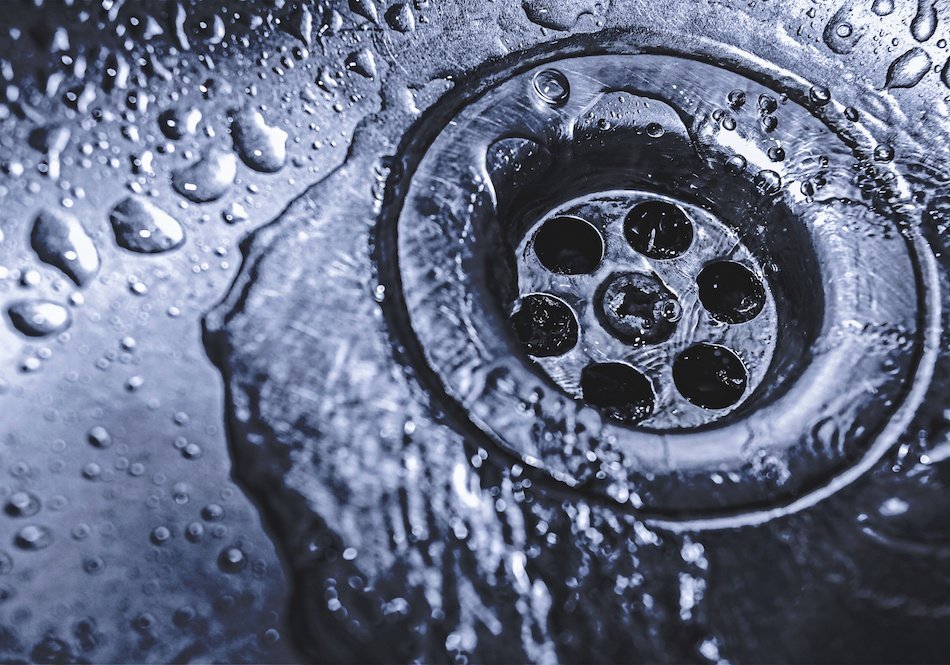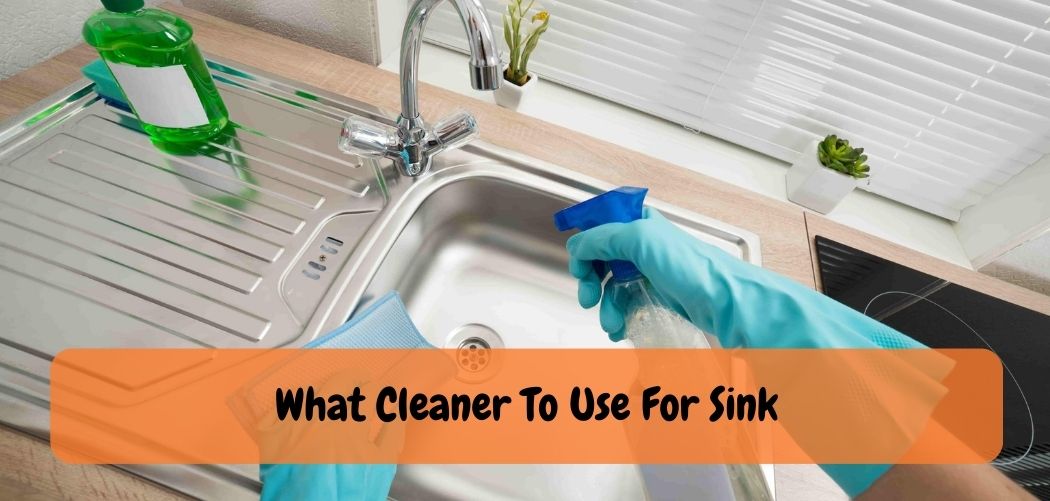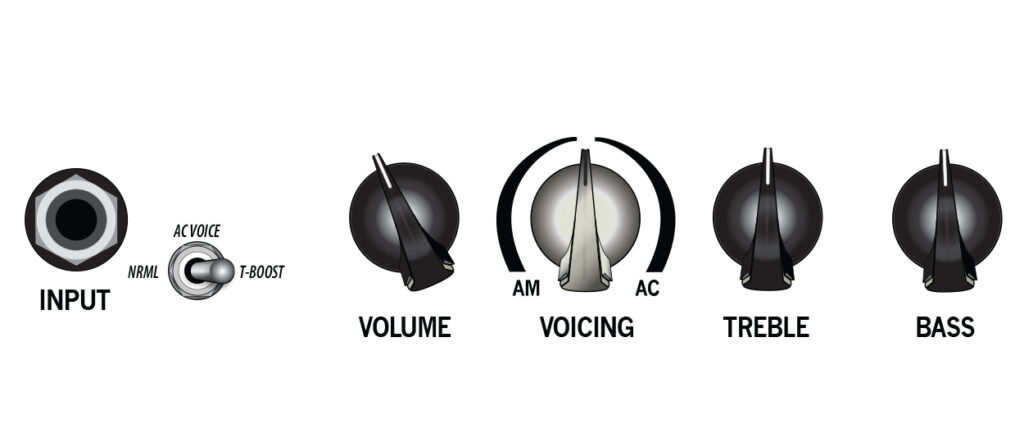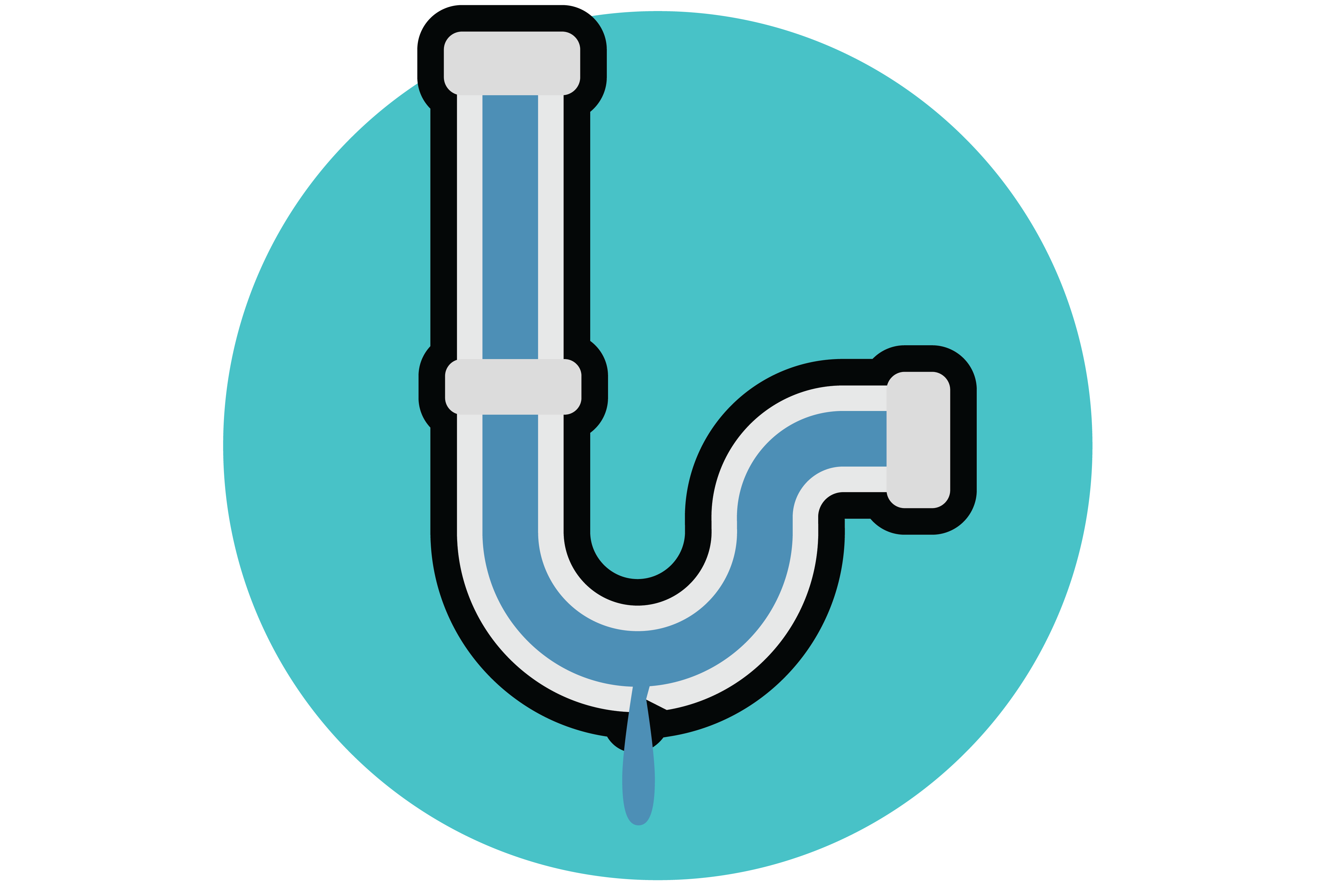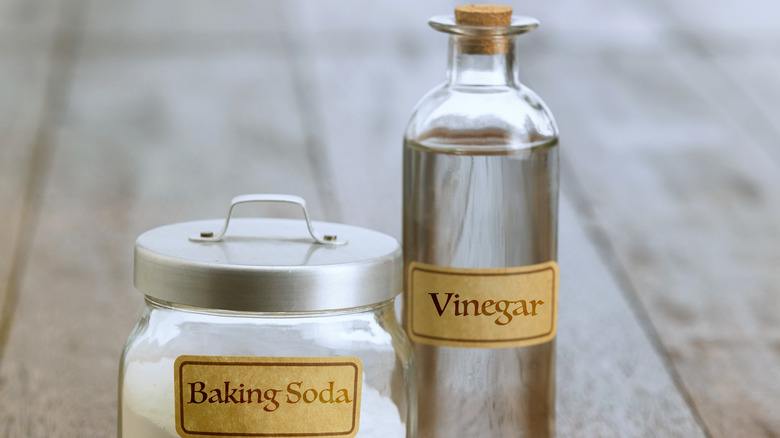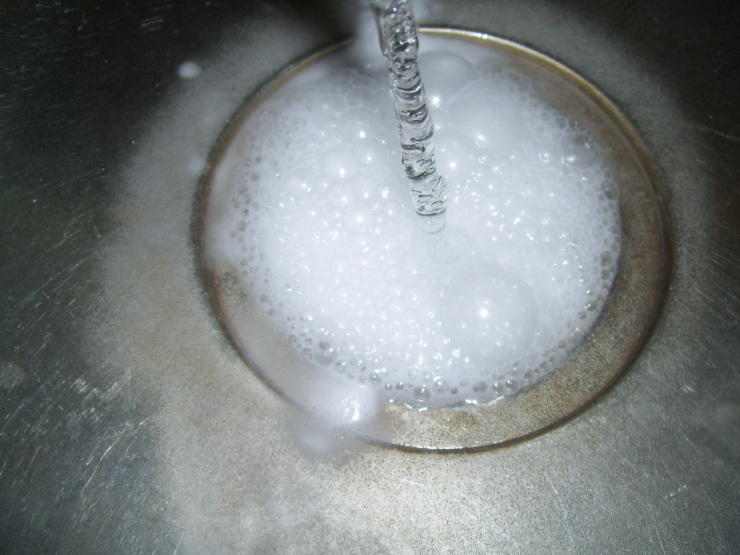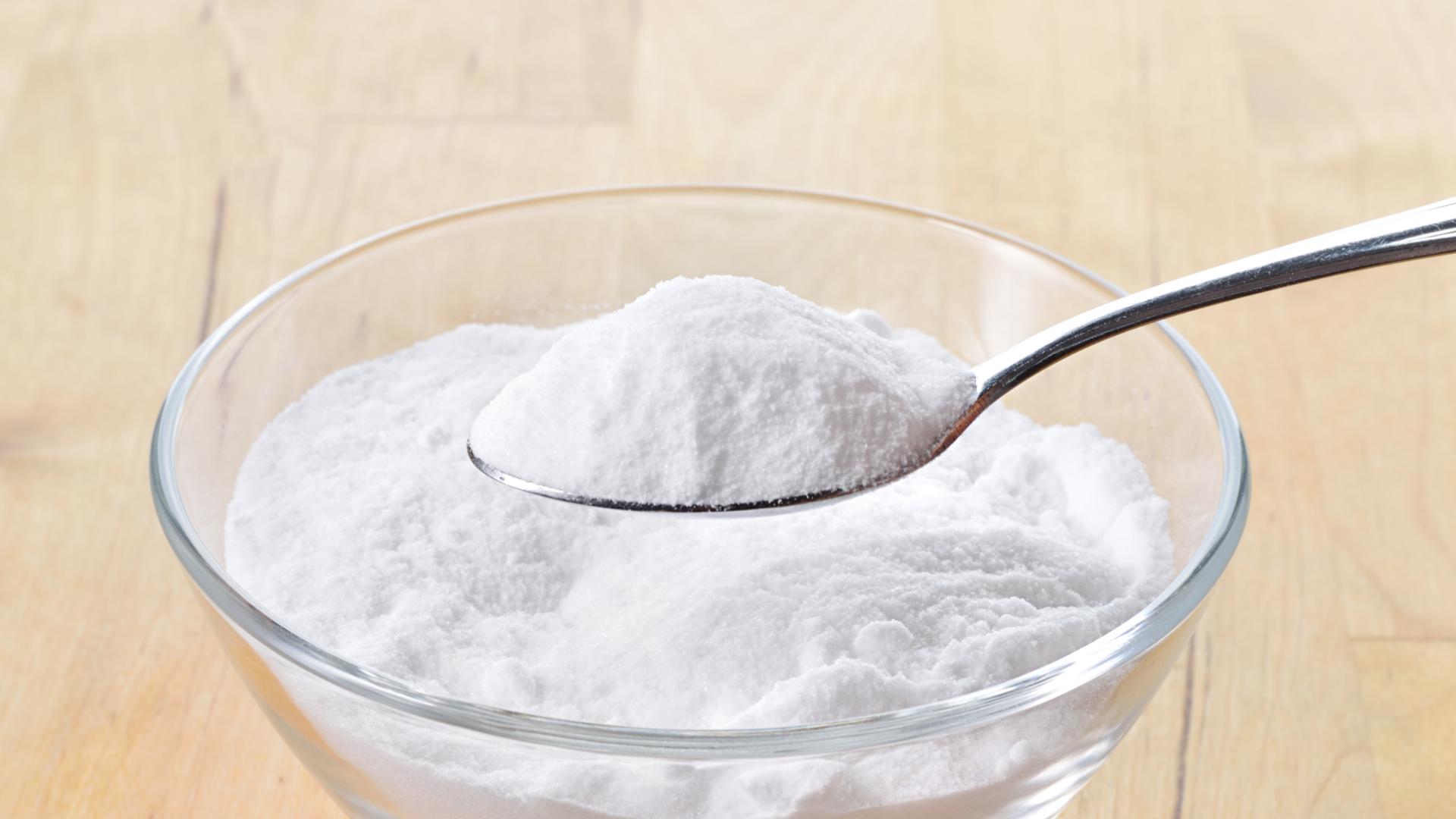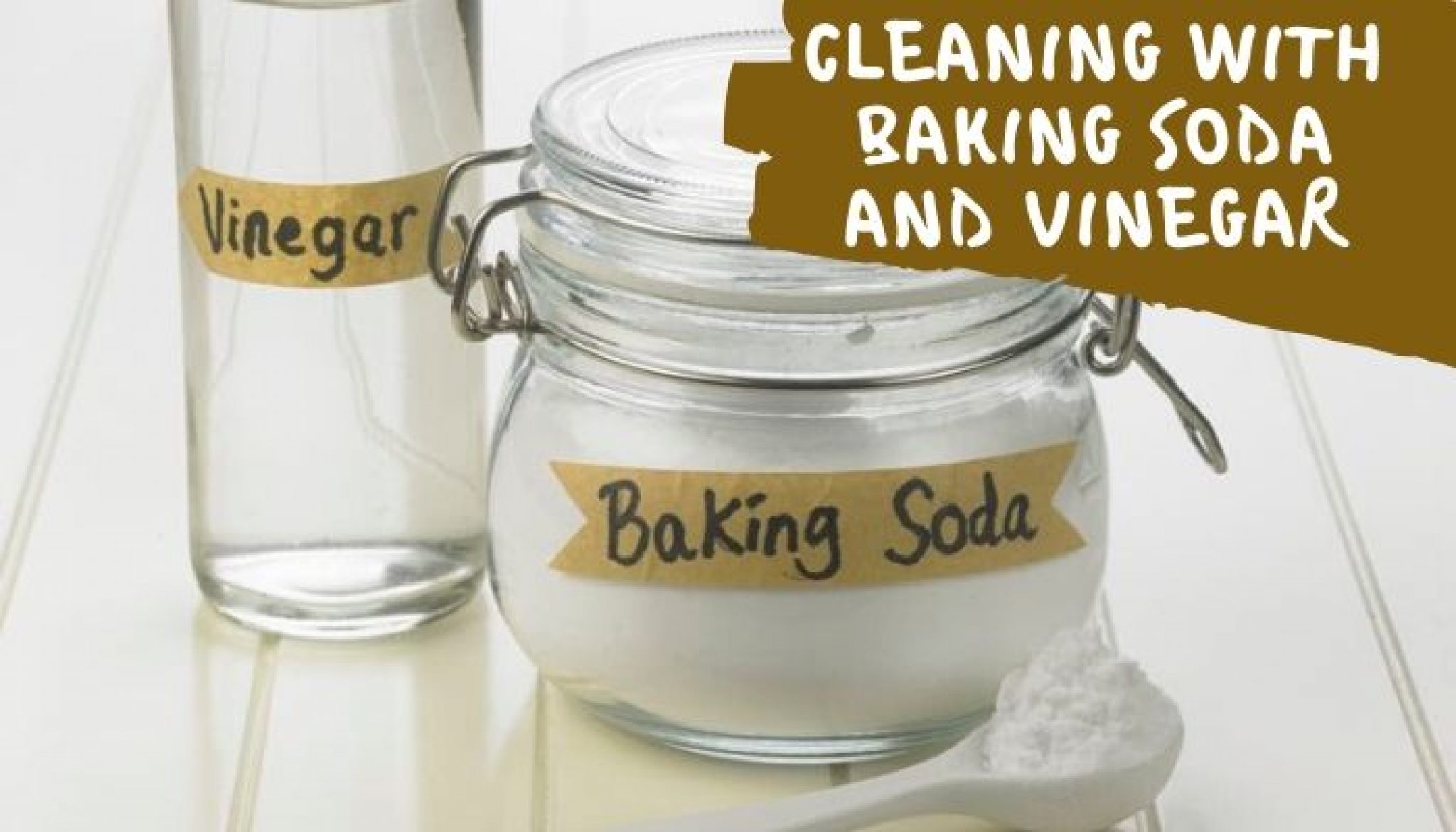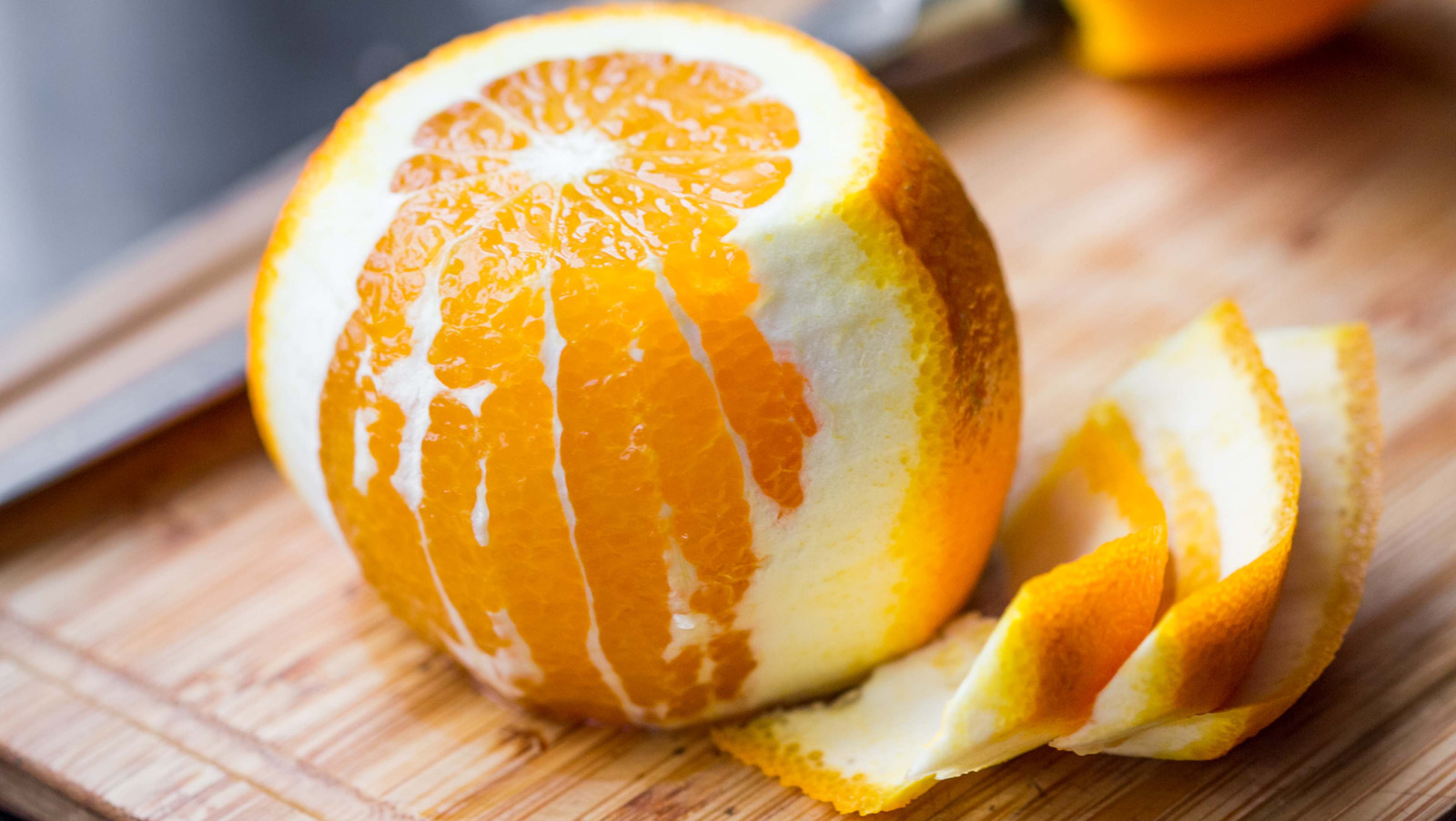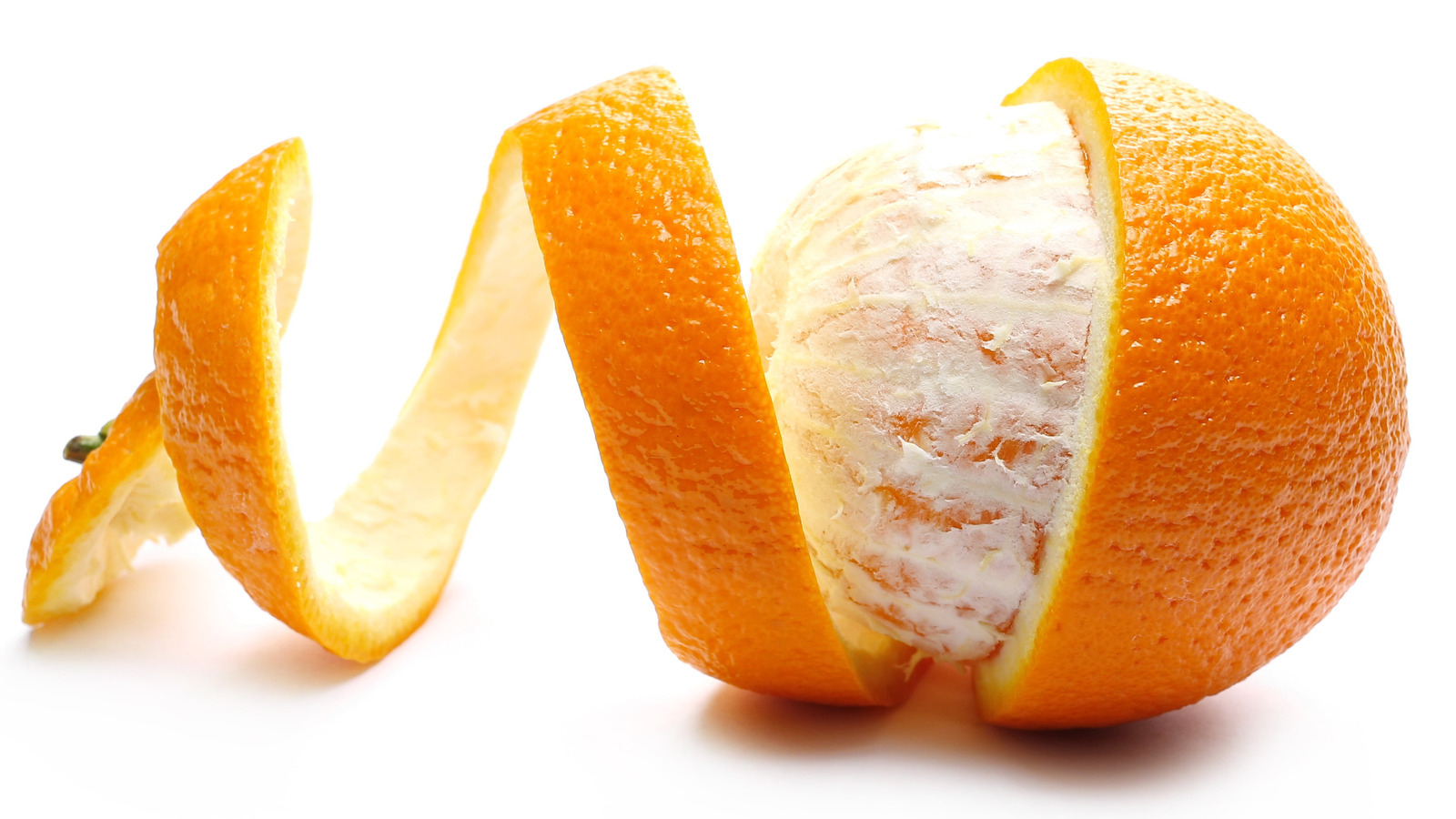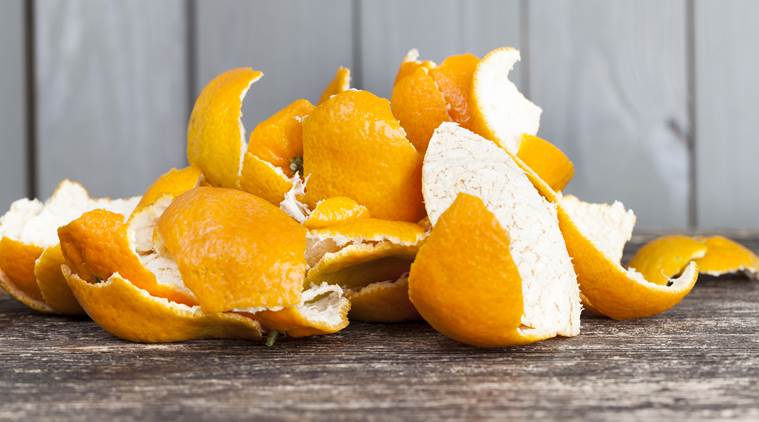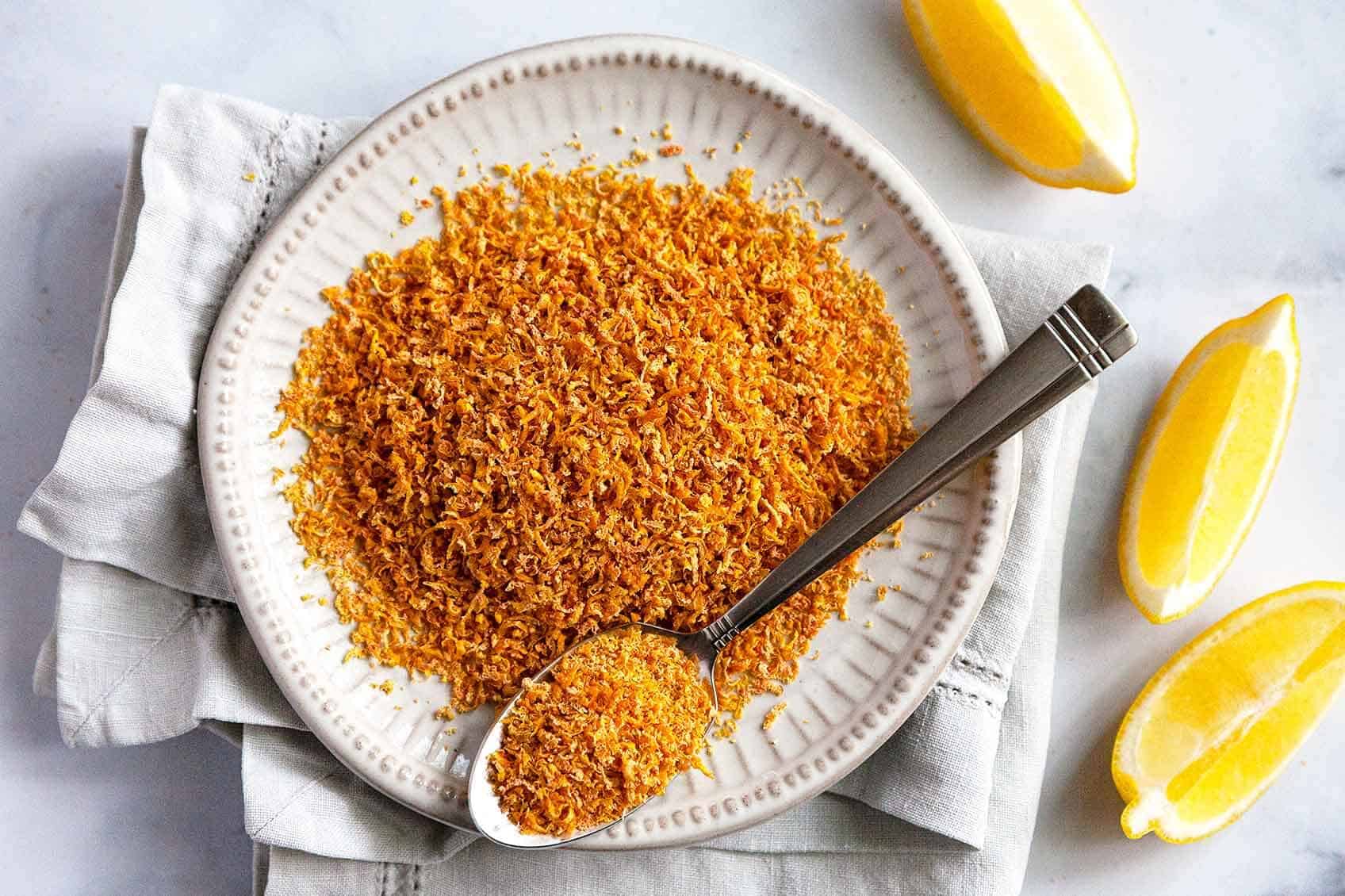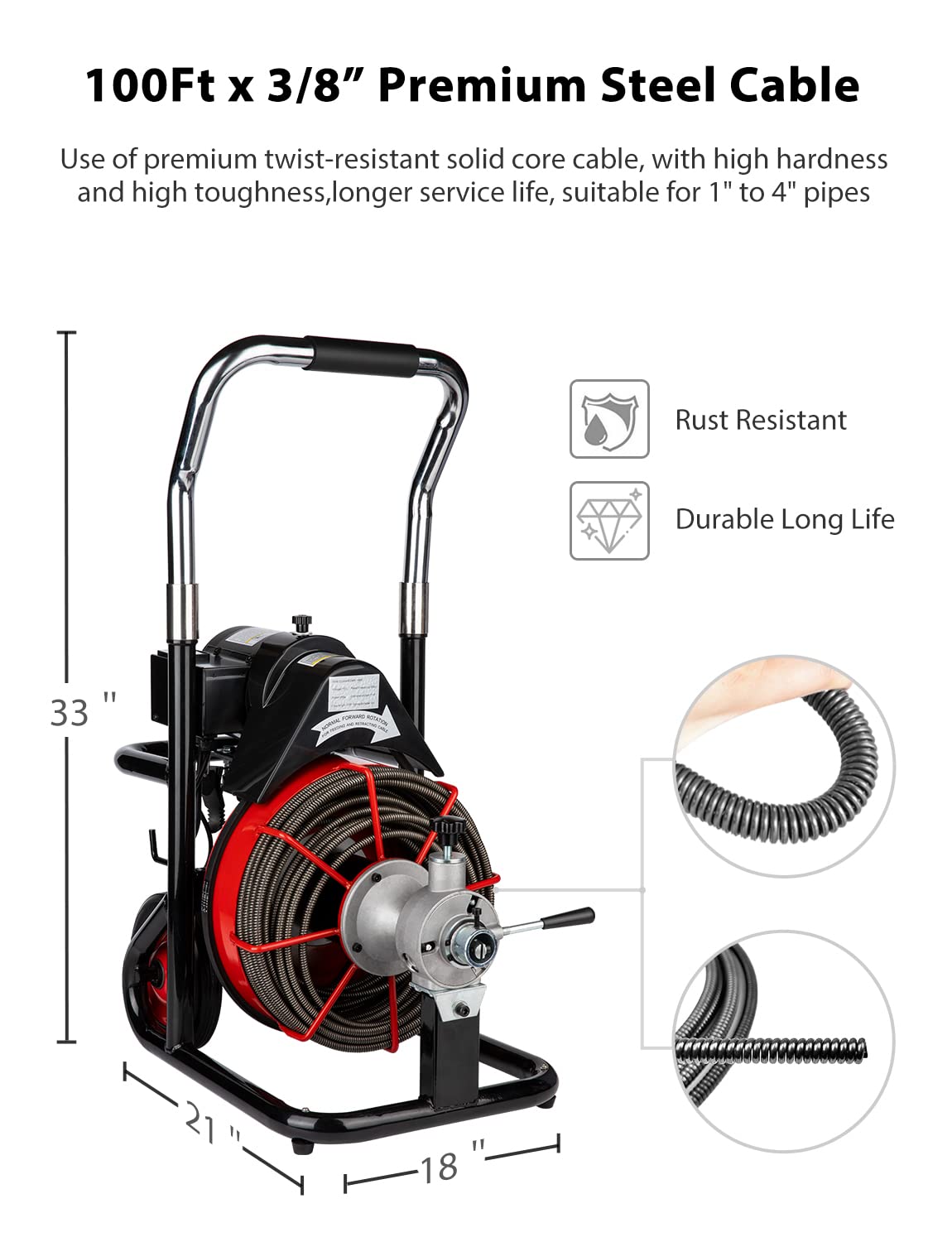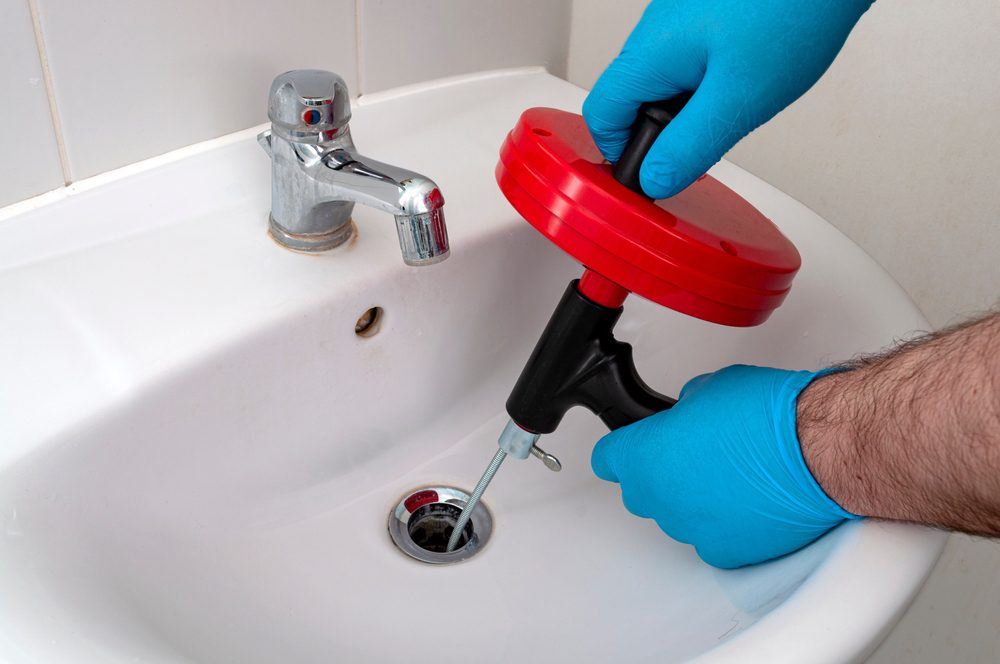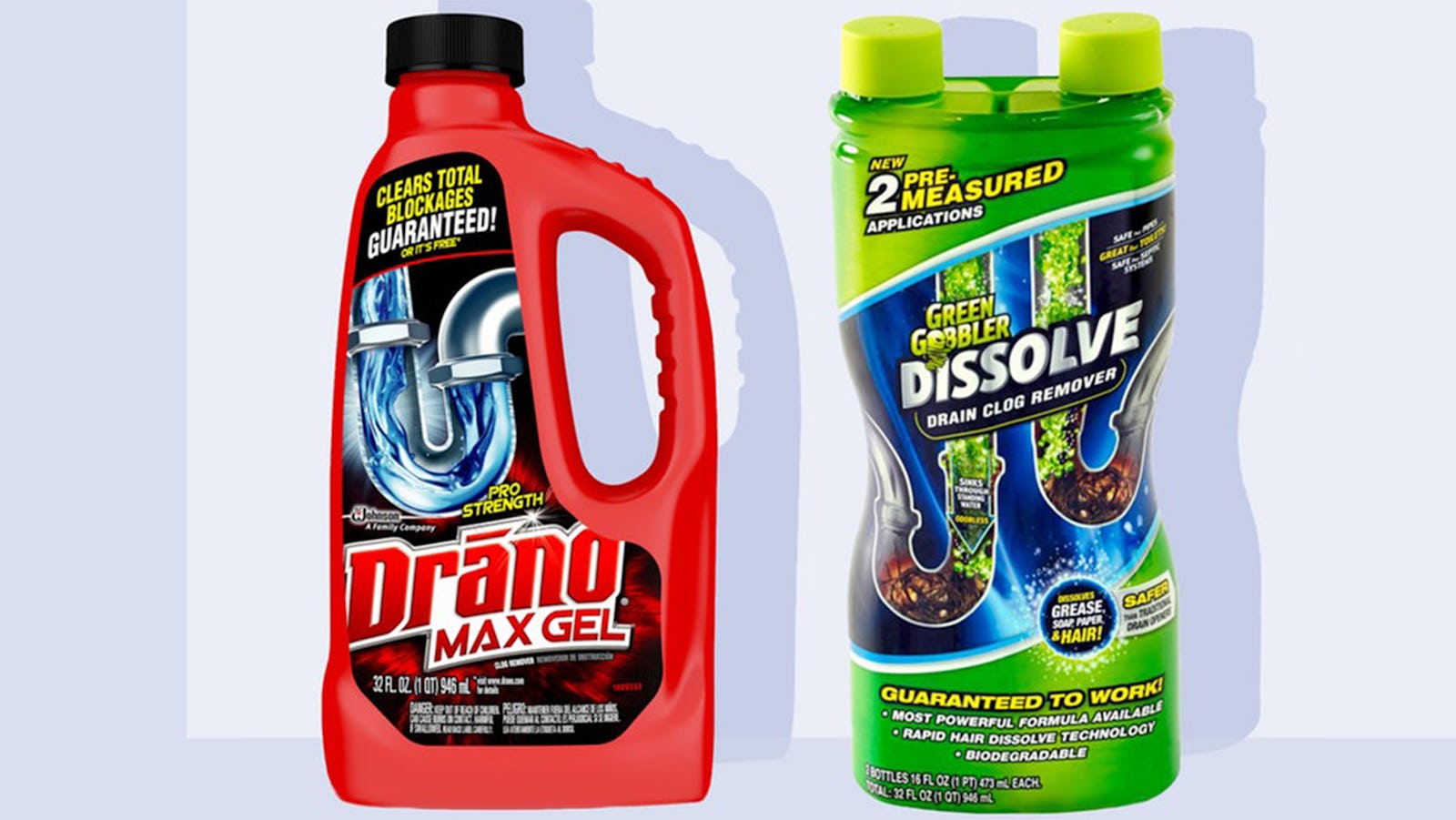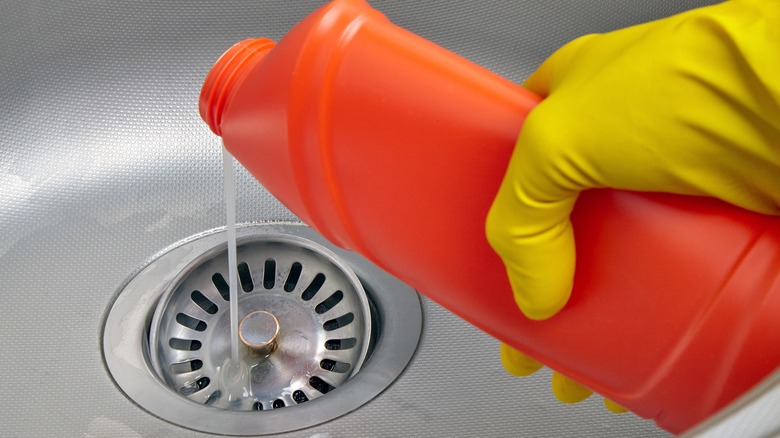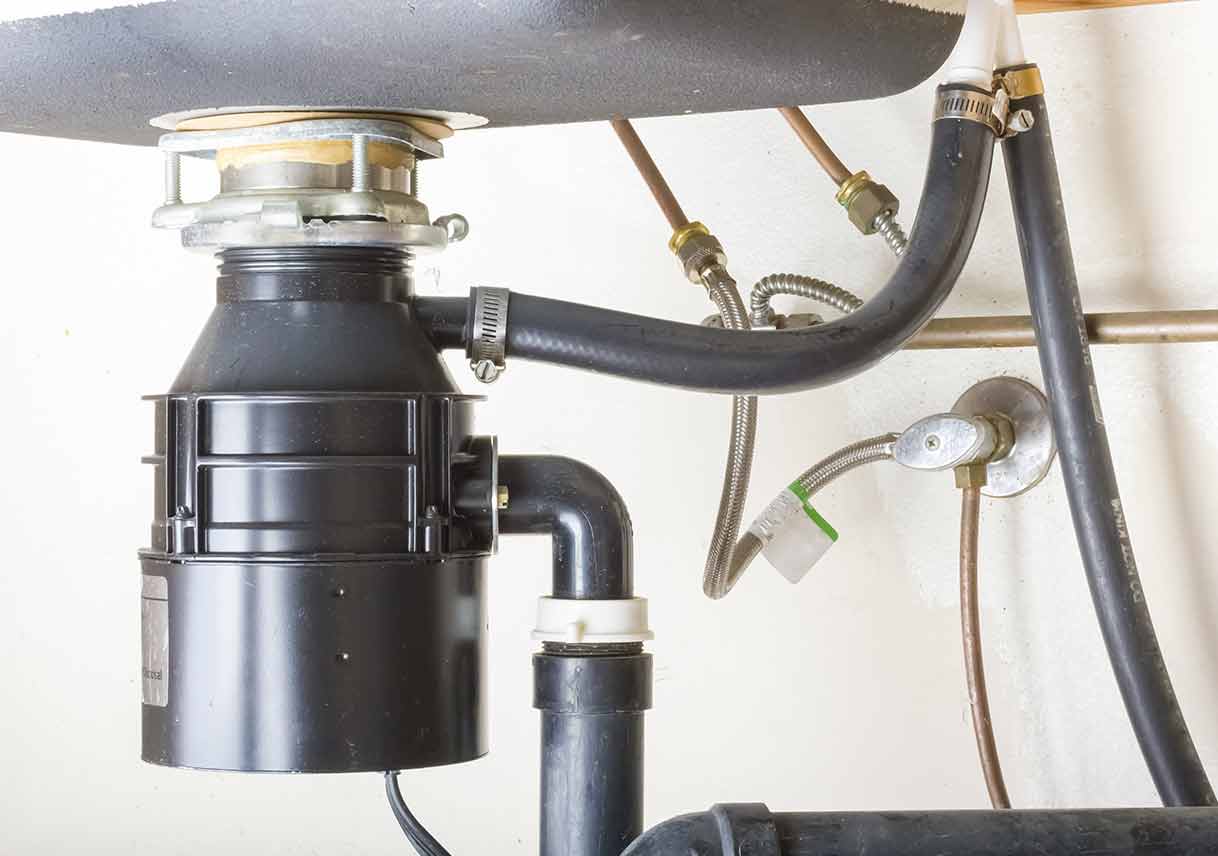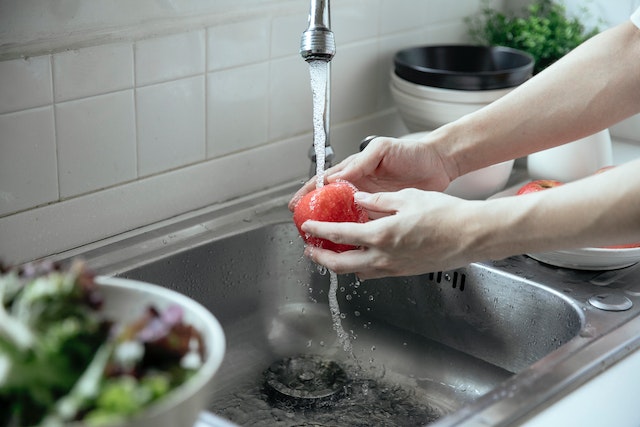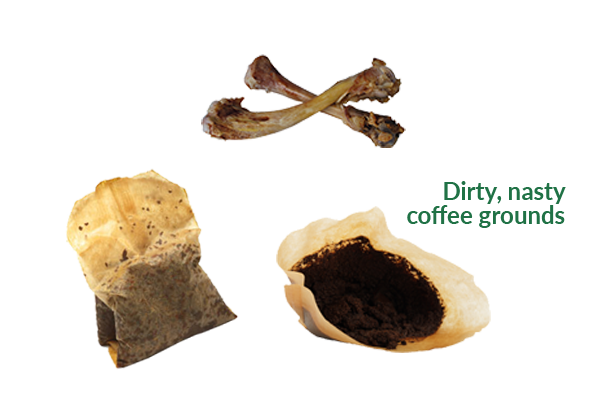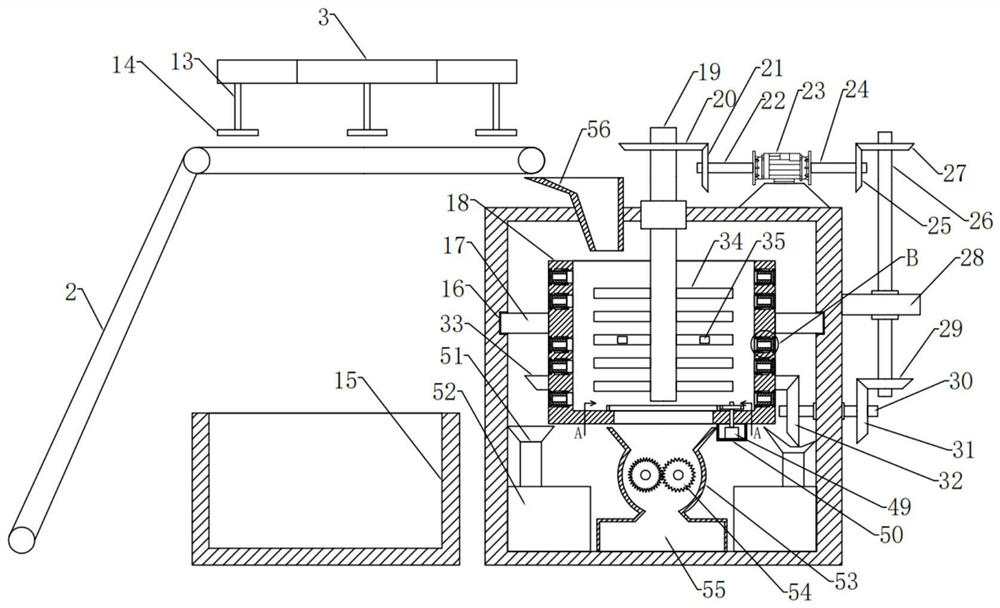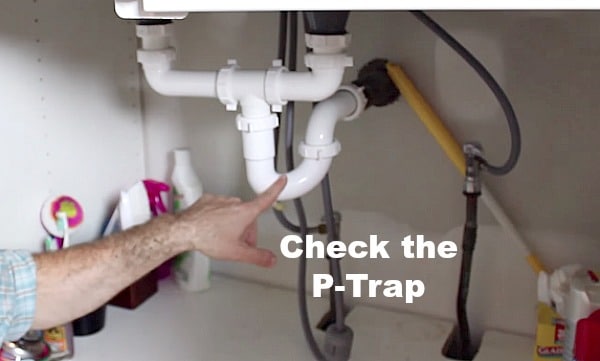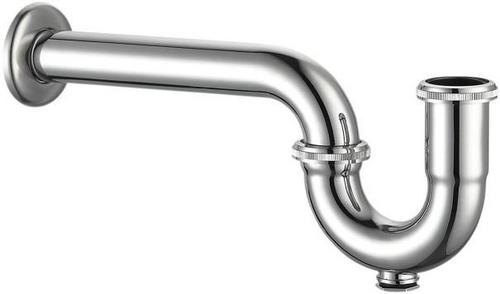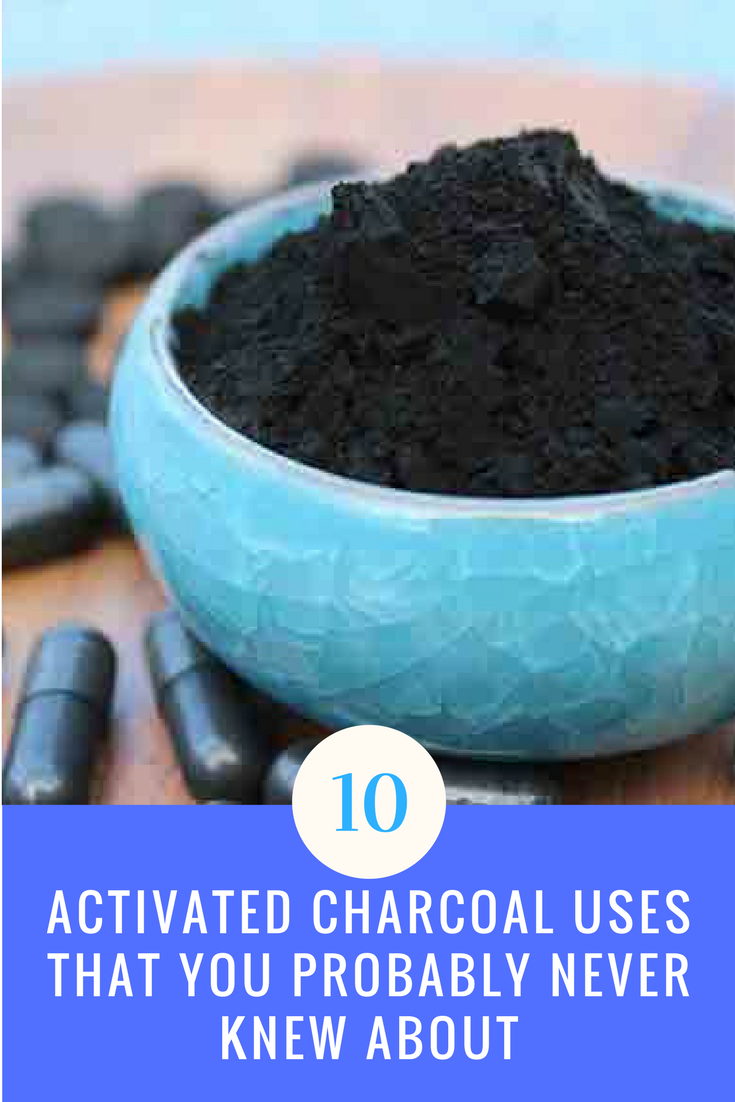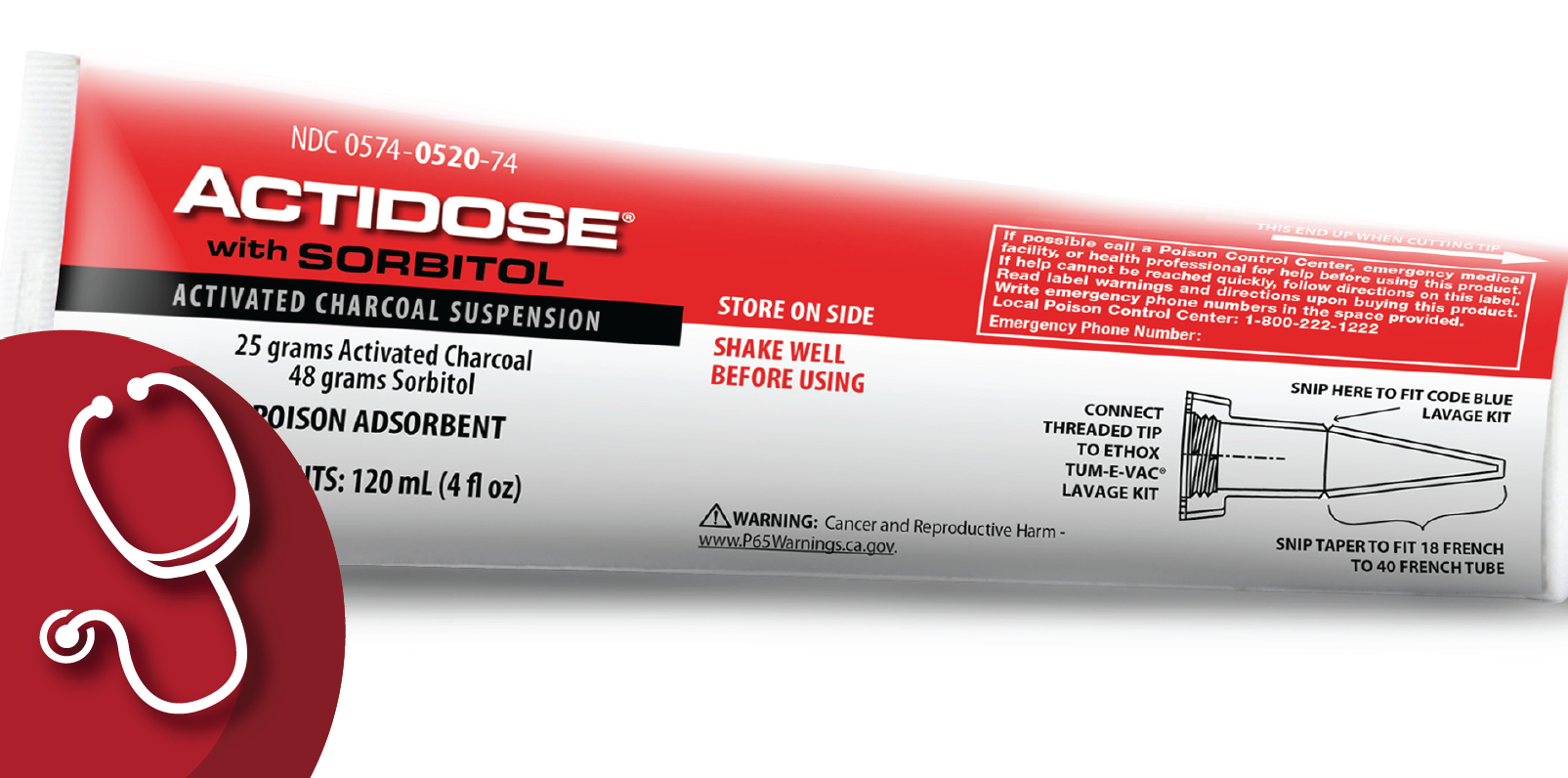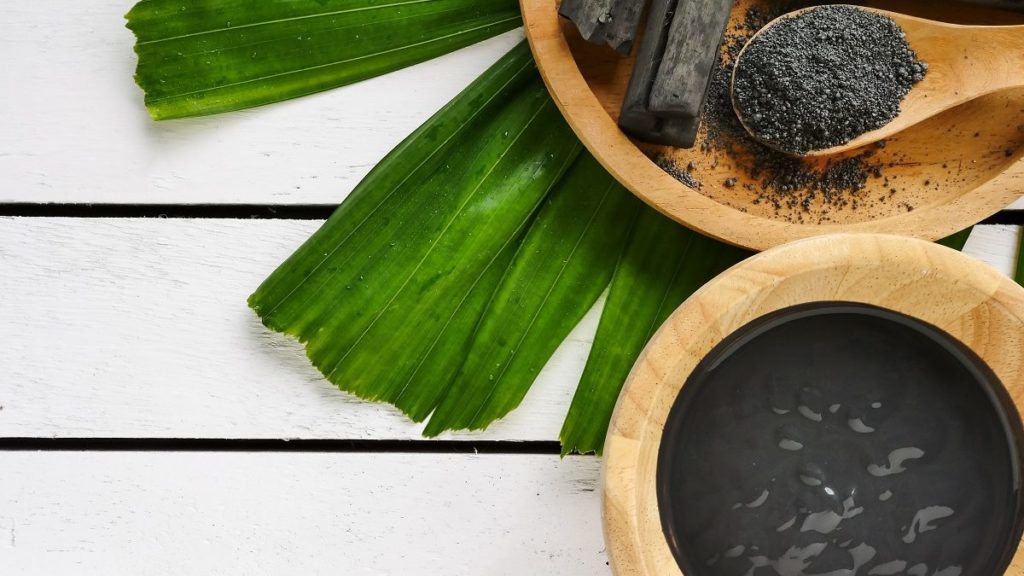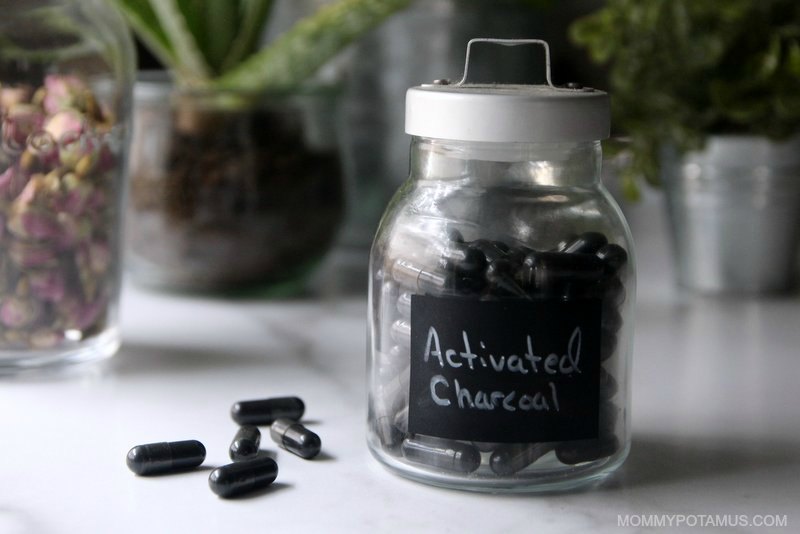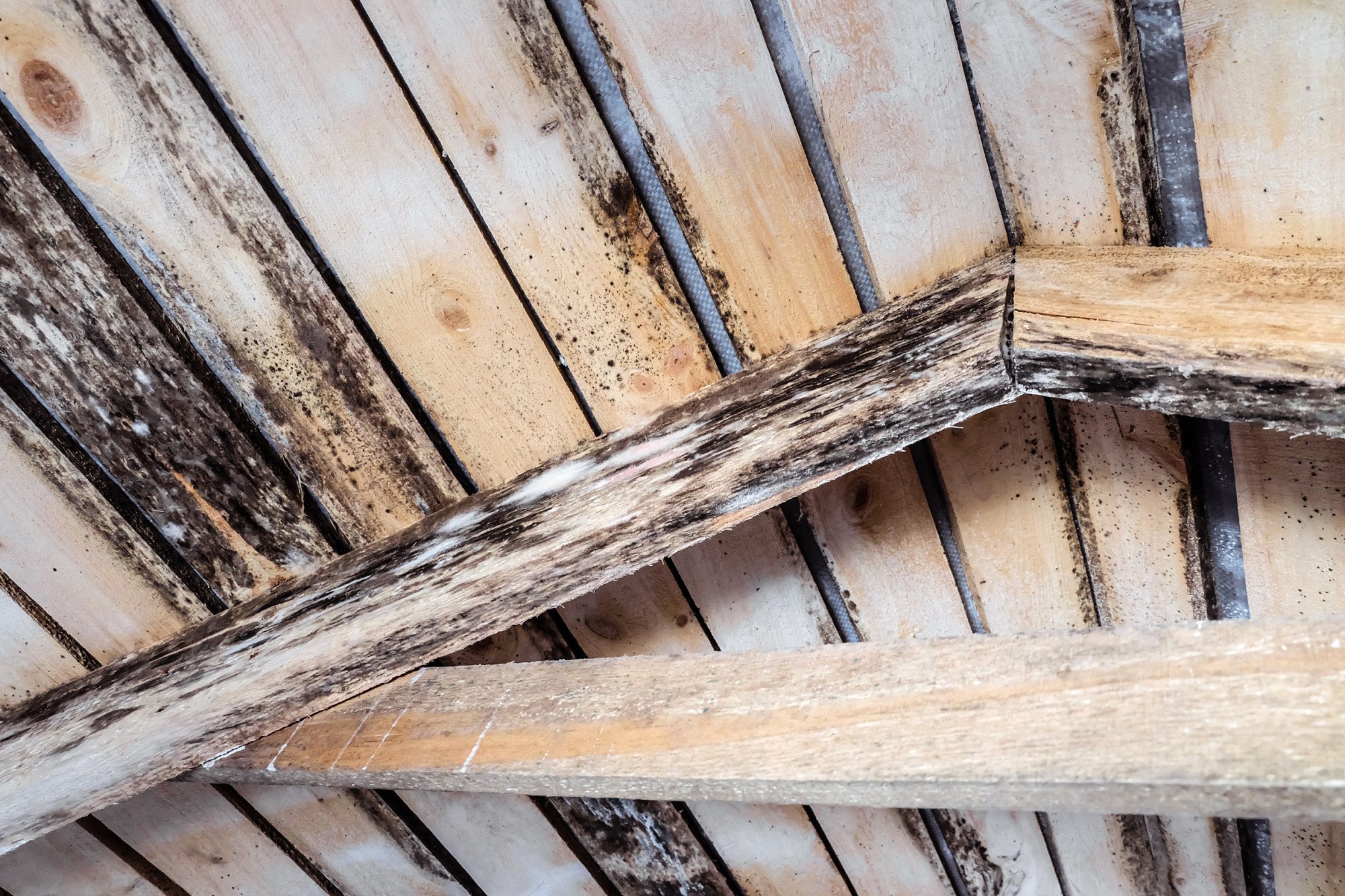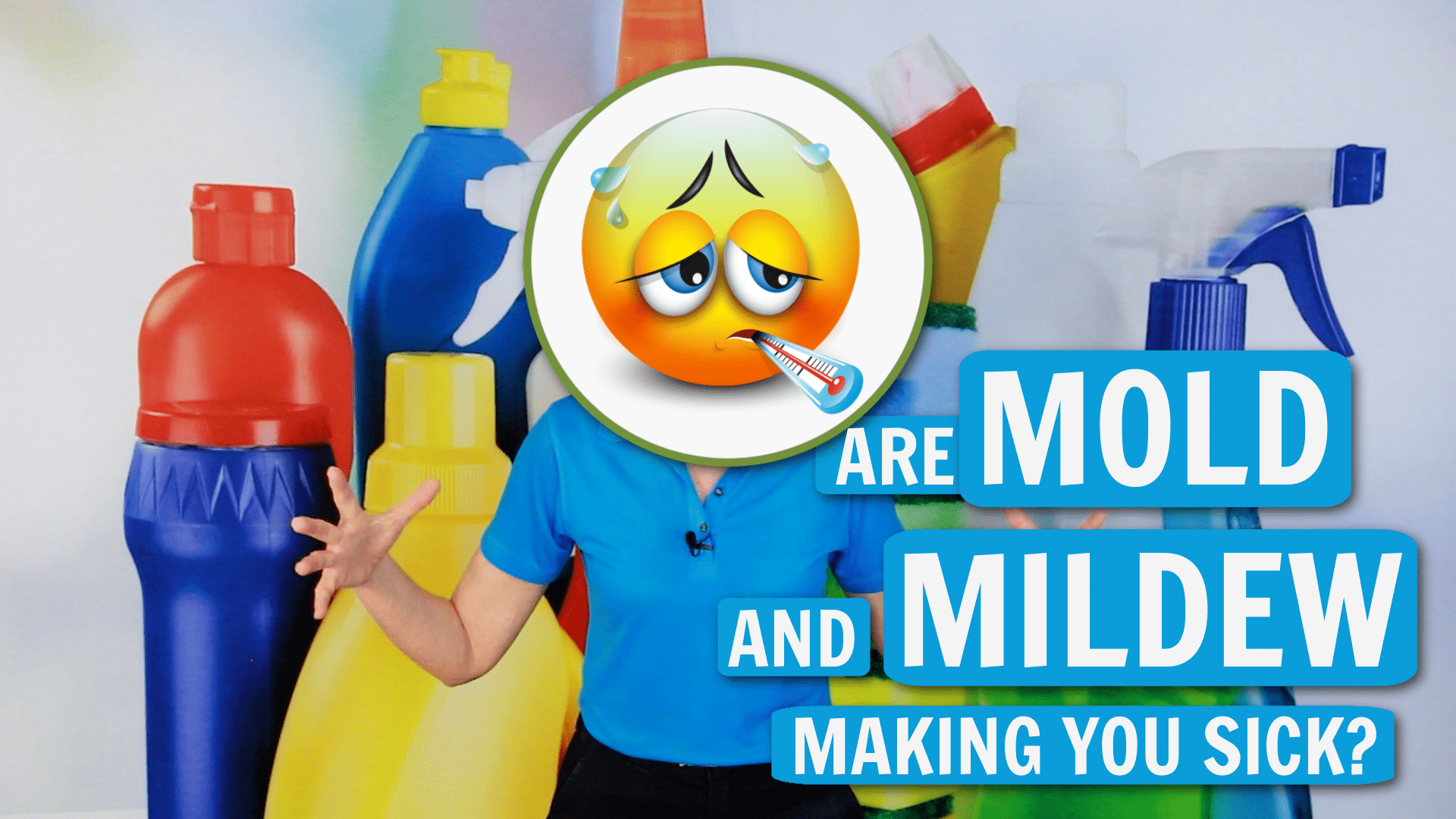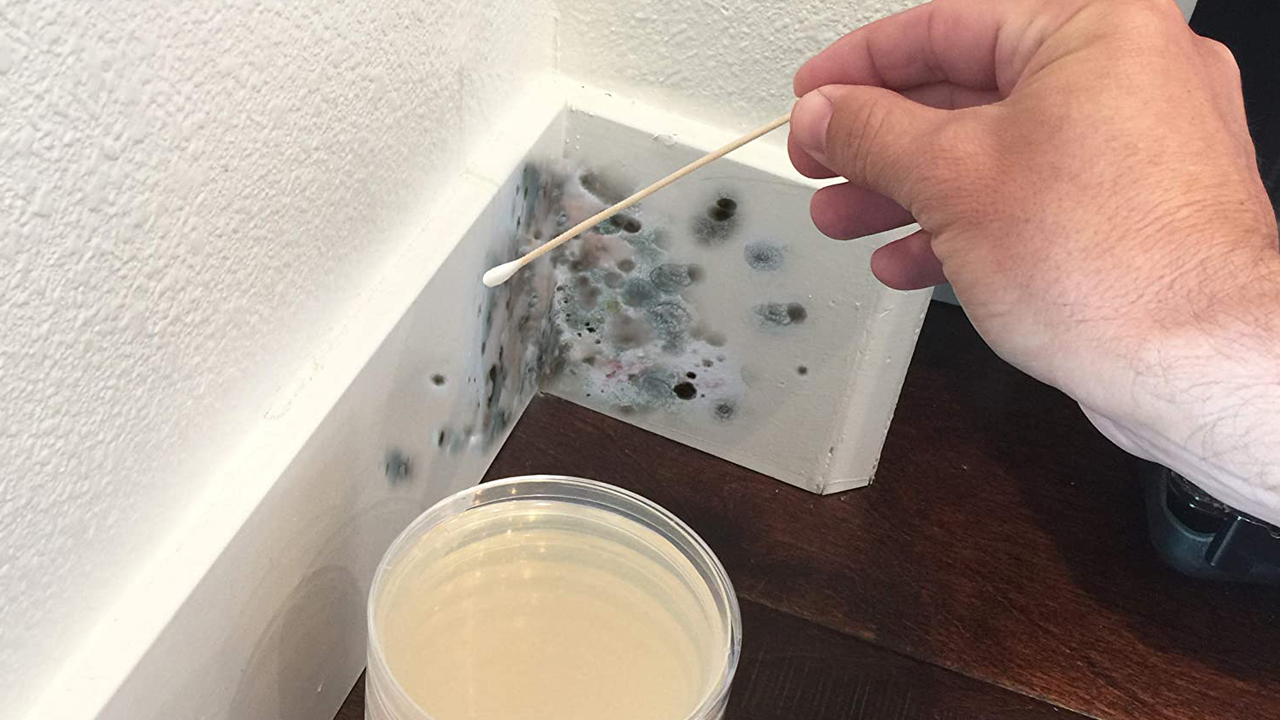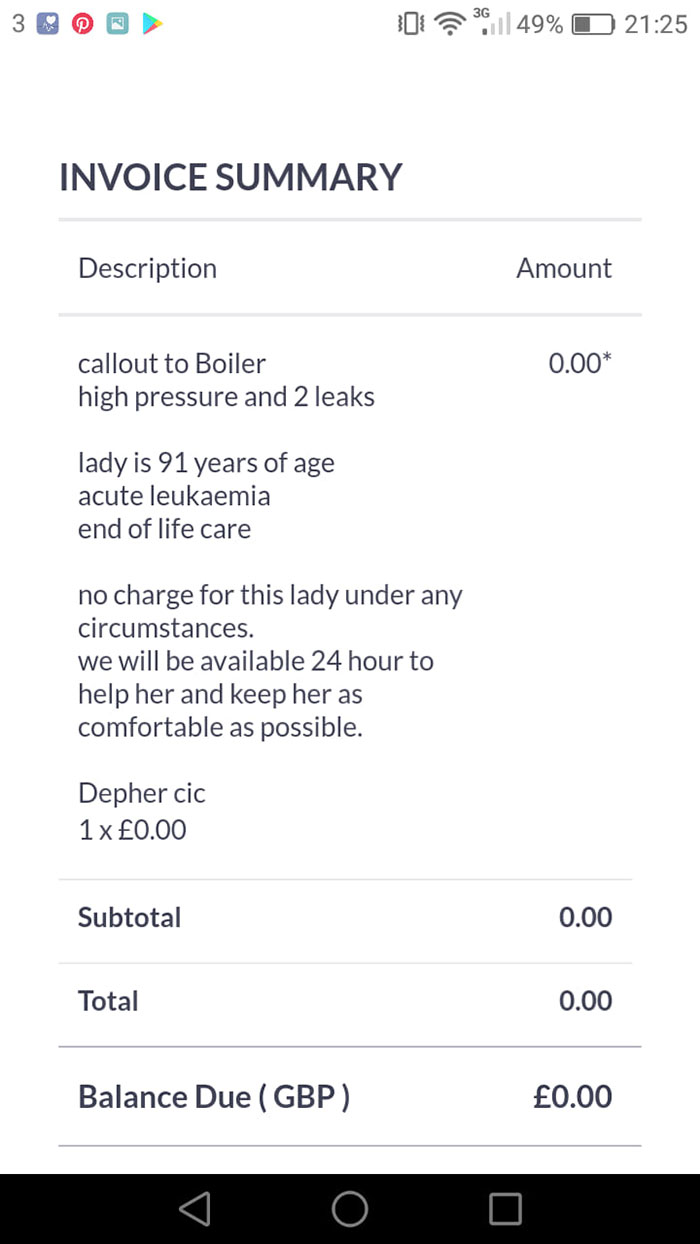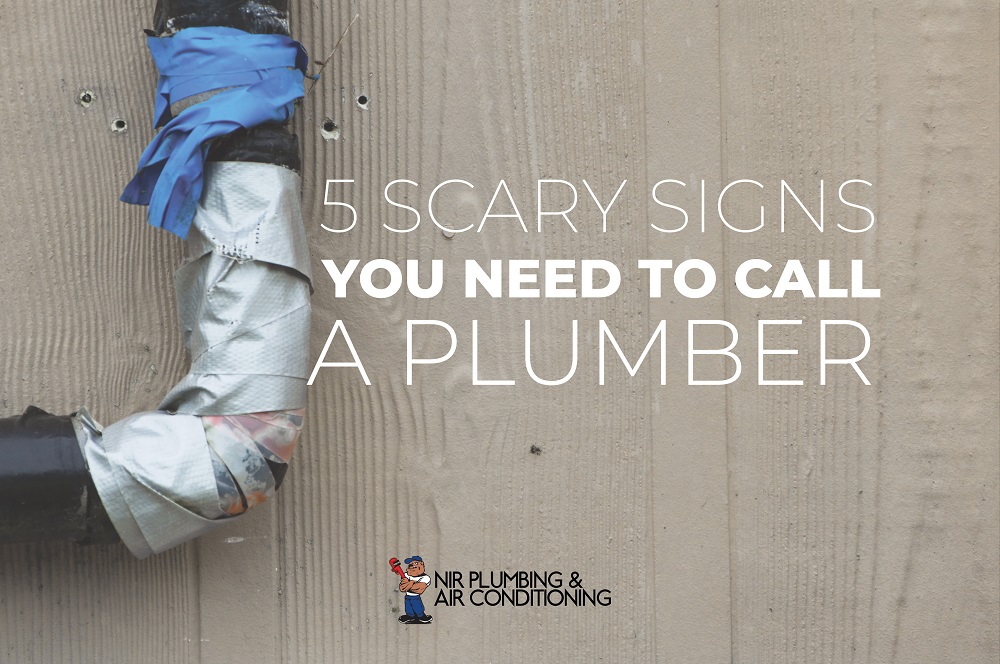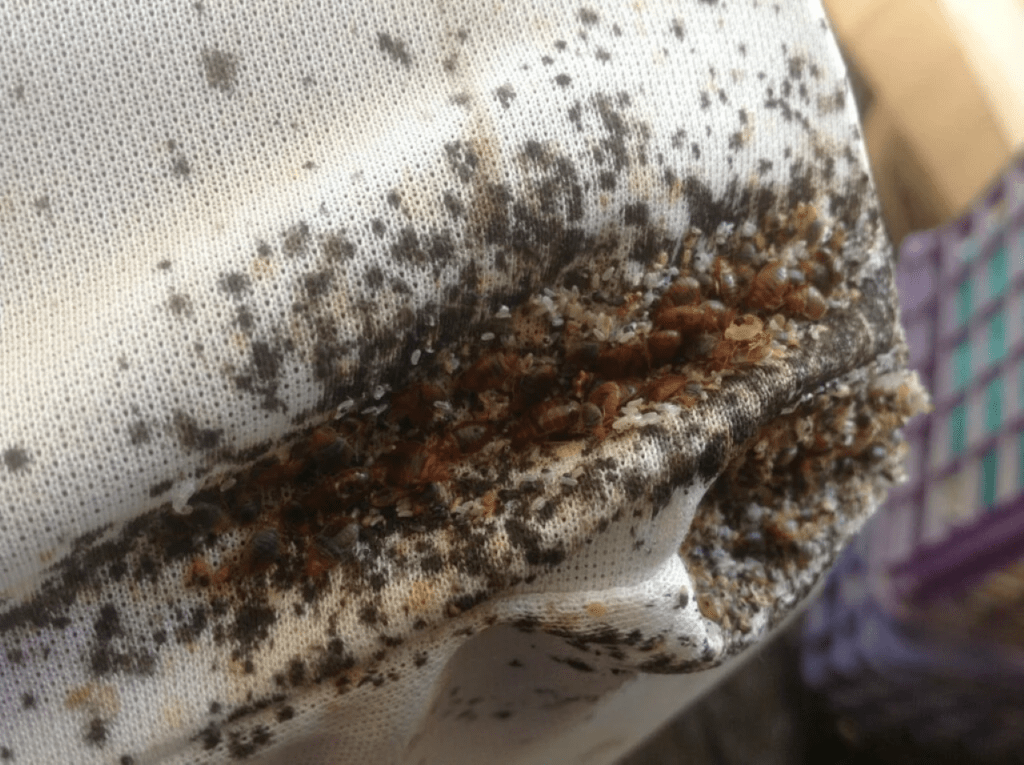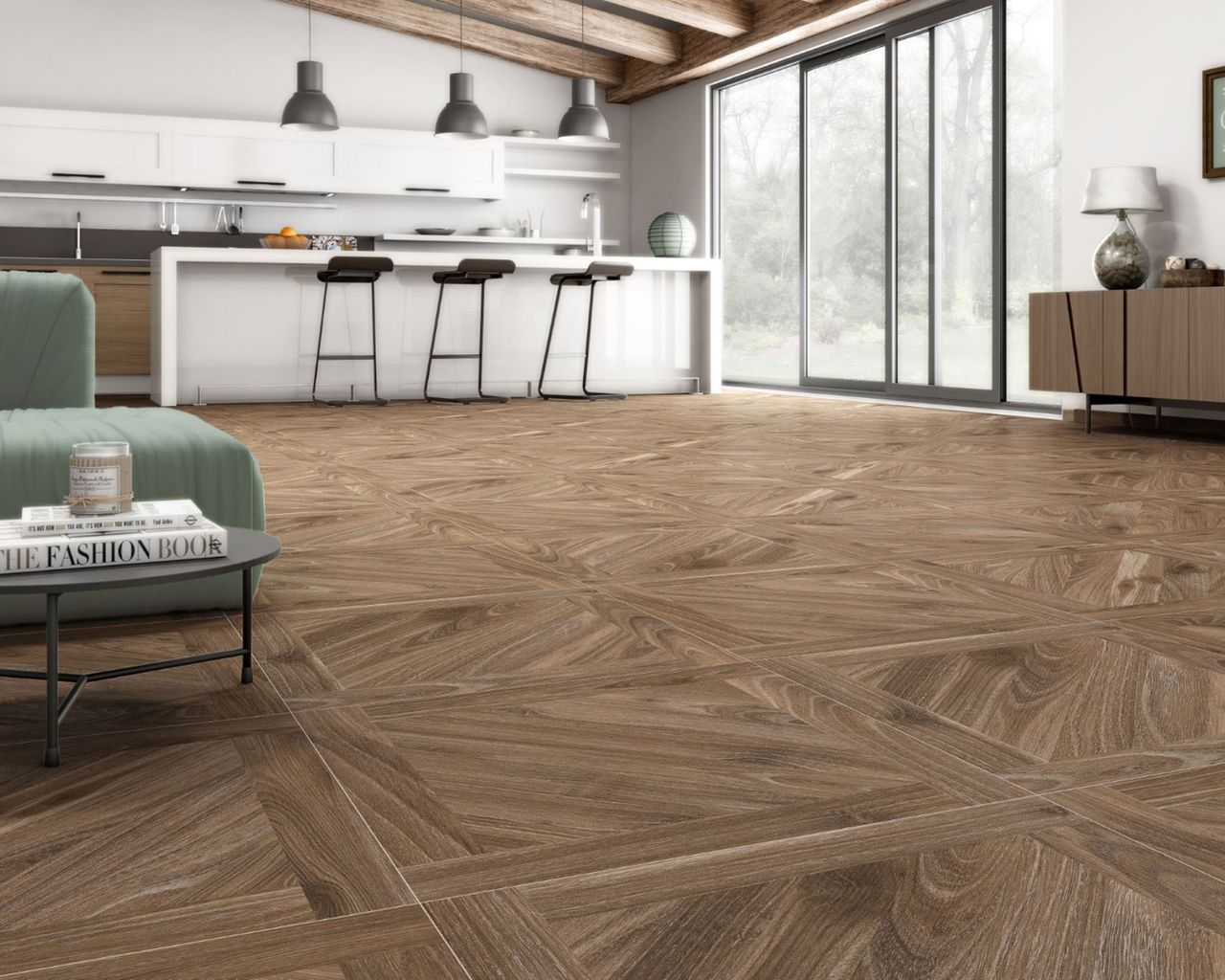If you're experiencing a bad odor coming from under your kitchen sink, the first step to take is to give it a good cleaning. Over time, food particles, grease, and other debris can build up in your sink and cause unpleasant smells. Start by removing any visible gunk or buildup from the surface of the sink using a scrub brush and some hot soapy water. Rinse the sink thoroughly and dry it with a clean cloth. Next, use a mixture of baking soda and vinegar to deep clean the sink and eliminate any lingering odors. Pour a cup of baking soda down the drain, followed by a cup of vinegar. Let it sit for a few minutes before rinsing it with hot water.1. Clean the Sink
If your sink is clean but the bad odor persists, it's important to check for any leaks in the plumbing. The smell could be coming from a leaky pipe or a loose connection. Inspect the pipes under the sink for any signs of moisture or water. If you notice a leak, it's best to call a plumber to fix the issue before it becomes a bigger problem.2. Check for Leaks
Baking soda and vinegar are not only great for cleaning your sink, but they can also help eliminate odors. Mix together equal parts of baking soda and vinegar in a small bowl. Pour the mixture down the drain and let it sit for at least 30 minutes before rinsing it with hot water. The combination of these two ingredients will help break down any buildup or debris in the pipes that could be causing the bad odor.3. Use Baking Soda and Vinegar
If you prefer a more natural approach, try using lemon or orange peels to freshen up your sink. Simply cut up some peels and put them down the drain. Run hot water over them and let it sit for a few minutes before rinsing. The citrus oils in the peels will help eliminate any odors and leave your sink smelling fresh and clean.4. Use Lemon or Orange Peels
If the odor persists, you may need to use a stronger solution to unclog your drain. There are various commercial drain cleaners available that can help break down any buildup and eliminate odors. Be sure to follow the instructions carefully and use caution when handling these chemicals.5. Use a Drain Cleaner
If your kitchen sink has a garbage disposal, it's important to check it for any clogs or buildup. The disposal can easily become jammed with food particles and other debris, causing a foul smell to come from the sink. Turn off the disposal and use a flashlight to inspect it for any clogs. You can also use a plunger or a plumbing snake to clear out any blockages.6. Check the Garbage Disposal
The P-trap is a curved section of pipe located under the sink that is designed to prevent sewer gases from coming up through the drain. If the P-trap is not properly sealed or has become clogged with debris, it can cause a bad odor to come from your sink. Inspect the P-trap and clean it out if necessary. You can also try pouring a mixture of hot water and vinegar down the drain to help clear out any buildup in the P-trap.7. Check the P-Trap
Activated charcoal is known for its ability to absorb and eliminate odors, making it a great option for getting rid of bad smells in your kitchen sink. You can find activated charcoal in the form of capsules or powder at most health food stores. Place a few capsules or a teaspoon of the powder down the drain and let it sit for a few hours before flushing it with hot water. This will help absorb any odors and leave your sink smelling fresh.8. Use Activated Charcoal
In some cases, a bad odor coming from the kitchen sink could be a sign of mold or mildew growth. These types of fungi thrive in dark, damp environments, making the underside of a sink the perfect breeding ground. Inspect the area under your sink for any signs of mold or mildew. If you find any, clean the area with a mixture of water and bleach to kill the spores and prevent them from coming back.9. Check for Mold or Mildew
If you've tried all of the above solutions and the bad odor is still present, it may be time to call a professional plumber. The issue could be more complex and require specialized equipment to fix. A plumber will be able to identify the source of the odor and provide a solution to eliminate it for good. In conclusion, a bad odor coming from under your kitchen sink is not only unpleasant, but it could also be a sign of a bigger issue. By following these tips and regularly maintaining your sink, you can keep your kitchen smelling fresh and clean. If the odor persists, don't hesitate to call a professional for assistance. With a little effort, you can banish that bad smell and enjoy a fresh and clean kitchen sink once again.10. Call a Plumber
How to Eliminate Bad Odor Coming From Under Kitchen Sink

Understand the Cause of the Bad Odor
 If you have noticed a foul smell coming from under your kitchen sink, it's important to understand the underlying cause. The most common reason for bad odor in this area is a build-up of food particles or grease in the garbage disposal or drain. This can lead to bacteria growth and create a strong, unpleasant smell. Another possible cause could be a leak in the plumbing, which can lead to mold and mildew growth, resulting in a musty odor.
If you have noticed a foul smell coming from under your kitchen sink, it's important to understand the underlying cause. The most common reason for bad odor in this area is a build-up of food particles or grease in the garbage disposal or drain. This can lead to bacteria growth and create a strong, unpleasant smell. Another possible cause could be a leak in the plumbing, which can lead to mold and mildew growth, resulting in a musty odor.
Take Action to Eliminate the Odor
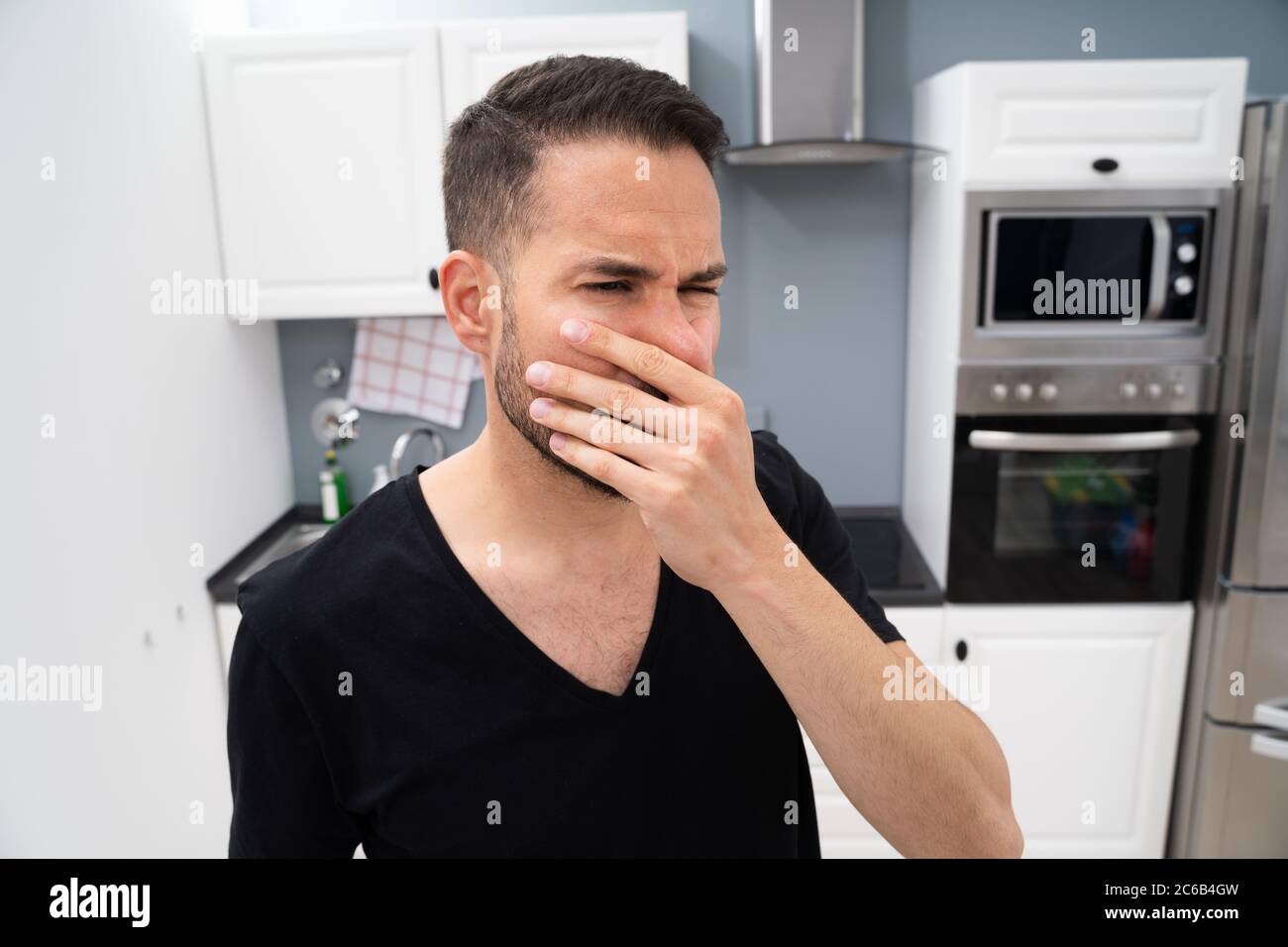 Once you have identified the source of the bad odor, it's time to take action and eliminate it. A quick and easy solution is to pour a mixture of
hot water and vinegar
down the drain. The acidity of the vinegar will help break down any build-up and kill bacteria. You can also try using
baking soda
as a natural deodorizer. Simply sprinkle it down the drain and let it sit for a few hours before flushing it out with hot water.
Once you have identified the source of the bad odor, it's time to take action and eliminate it. A quick and easy solution is to pour a mixture of
hot water and vinegar
down the drain. The acidity of the vinegar will help break down any build-up and kill bacteria. You can also try using
baking soda
as a natural deodorizer. Simply sprinkle it down the drain and let it sit for a few hours before flushing it out with hot water.
Prevent Future Odors
 To prevent the bad odor from returning, it's important to take some preventative measures. Make sure to
regularly clean
your garbage disposal and drain by using a specialized cleaner or a combination of hot water and vinegar. You can also
avoid disposing
of hard-to-break-down foods, such as eggshells, coffee grounds, and potato peels, in the garbage disposal. Additionally, check for any leaks in the plumbing and
fix them promptly
to prevent mold and mildew growth.
To prevent the bad odor from returning, it's important to take some preventative measures. Make sure to
regularly clean
your garbage disposal and drain by using a specialized cleaner or a combination of hot water and vinegar. You can also
avoid disposing
of hard-to-break-down foods, such as eggshells, coffee grounds, and potato peels, in the garbage disposal. Additionally, check for any leaks in the plumbing and
fix them promptly
to prevent mold and mildew growth.
Consider a Kitchen Design Update
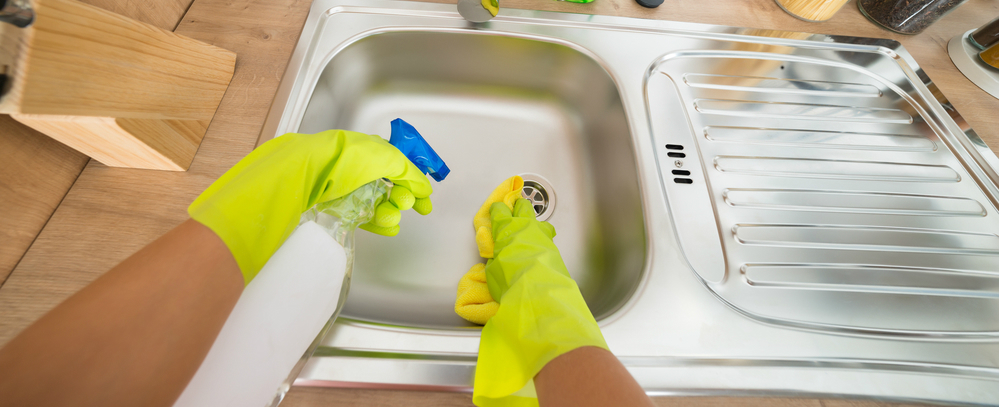 If you have tried all of these solutions and the bad odor persists, it might be time to consider updating your kitchen design. A poorly designed sink area can contribute to the accumulation of food particles and grease, leading to unpleasant odors. Consider investing in a
larger sink
with a garbage disposal that can handle larger food items. You can also opt for a
separate compost bin
for food scraps to prevent them from clogging up the sink drain.
In conclusion, a bad odor coming from under your kitchen sink can be a nuisance and a sign of potential issues. By understanding the cause, taking action to eliminate the odor, and implementing preventative measures, you can keep your kitchen smelling fresh and clean. Consider updating your kitchen design if the problem persists and don't hesitate to call a professional plumber if you suspect a plumbing issue. With these tips, you can say goodbye to bad odors in your kitchen for good.
If you have tried all of these solutions and the bad odor persists, it might be time to consider updating your kitchen design. A poorly designed sink area can contribute to the accumulation of food particles and grease, leading to unpleasant odors. Consider investing in a
larger sink
with a garbage disposal that can handle larger food items. You can also opt for a
separate compost bin
for food scraps to prevent them from clogging up the sink drain.
In conclusion, a bad odor coming from under your kitchen sink can be a nuisance and a sign of potential issues. By understanding the cause, taking action to eliminate the odor, and implementing preventative measures, you can keep your kitchen smelling fresh and clean. Consider updating your kitchen design if the problem persists and don't hesitate to call a professional plumber if you suspect a plumbing issue. With these tips, you can say goodbye to bad odors in your kitchen for good.




